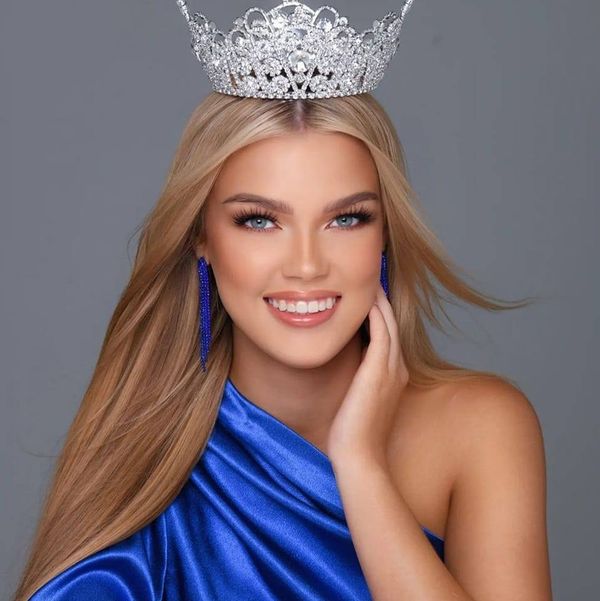
The US supreme court will hear Donald Trump’s appeal of the Colorado ruling that he should be removed from the state ballot under the 14th amendment to the US constitution, for inciting an insurrection.
The court issued a brief order on Friday, setting up a dramatic moment in American history.
The case will be argued on 8 February. As the Republican presidential primary will then be well under way, with Iowa, New Hampshire and Nevada having voted – and as Trump has also been disqualified from the ballot in Maine, a ruling appealed in state court – a quick decision is expected.
The Colorado primary is set for 5 March. The state government must begin mailing ballots to overseas voters on 20 January and to all others between 12 and 16 February. The ruling suspending Trump is stayed, however, as long as the supreme court appeal is ongoing.
In the year of a high-stakes presidential election, the case is set to move rapidly, under a fierce spotlight. Carl Tobias, a law professor at the University of Richmond, said that with “oral argument set for 8 February, the appeal will be extremely expedited … thus, briefs will probably be due as soon as possible, maybe [in] a week or 10 days for each side.”
The 14th amendment was approved after the civil war, meant to bar from office supporters of the rebel Confederate states. But it has rarely been used. Cases against Trump were mounted after he was impeached but acquitted by the Senate over the attack on Congress by his supporters on 6 January 2021, then swiftly came to dominate the Republican presidential primary for 2024, all while maintaining the lie that his defeat by Joe Biden in 2020 was the result of electoral fraud.
Fourteenth-amendment challenges to Trump in other states have either failed or remain undecided.
The Colorado supreme court ruled against Trump on 19 December but stayed the ruling until 4 January, pending appeal. That appeal came earlier this week, Trump’s lawyers arguing that only Congress could arbitrate such disputes and saying the relevant text in the 14th amendment – in section 3 – did not apply to the presidency or vice-presidency as they are not mentioned therein.
ABC News has reported debates from the passage of the amendment, in 1866, in which the presidency was said to be covered.
Prominent legal scholars including Laurence Tribe of Harvard and the retired conservative judge J Michael Luttig have said Trump should be disqualified from seeking the presidency under the 14th amendment.
Luttig, who testified memorably before the House January 6 committee, called the Colorado ruling “historic … a monumental decision of constitutional law … masterful and … unassailable”. He has also said the US supreme court ruling will be “arguably … the single most important constitutional decision in all of our history”.
Other voices, including conservative lawyers and professors and all Trump’s major opponents for the Republican nomination, have questioned whether section 3 applies to the presidency, or to someone not convicted of insurrection. Most (and some senior Democrats) have also said the Colorado ruling is anti-democratic, because only voters should decide Trump’s fitness for office.
Luttig has countered such arguments, saying: “The 14th amendment itself, in section 3, answers the question whether disqualification is ‘anti-democratic’, declaring that it is not. Rather, it is the conduct that gives rise to disqualification that is anti-democratic, per the command of the constitution.”
Trump also faces extensive legal jeopardy: he faces 91 criminal charges under four indictments, 17 concerning election subversion, and civil threats including cases over his business affairs and a defamation suit arising from an allegation of rape a judge said was “substantially true”.
Nonetheless, he leads Republican polling by vast margins. Were the supreme court to rule against him in the Colorado case, the US would find itself in uncharted waters.
On Friday, Steven Cheung, Trump’s spokesperson, said the campaign welcomed “a fair hearing at the supreme court to argue against the bad-faith, election-interfering, voter-suppressing, Democrat-backed and Biden-led, 14th amendment abusing decision” in Colorado.
Cheung also claimed the Colorado case and others like it were “part of a well-funded effort by leftwing political activists hell-bent on stopping the lawful re-election of President Trump this November, even if it means disenfranchising voters”.
Writing on his blog, Richard Hasen, an election law professor at the University of Los Angeles, California, pointed to uncertainties about how the supreme court case will unfold, given what he called a “blob” of a filing from Trump’s lawyers, while saying lawyers for Colorado “raised three questions, which somewhat overlap with Trump’s claims”.
“This seems like it could be a free-for-all in arguments and briefing,” Hasen wrote, adding: “Buckle up; it’s going to be a wild ride from here on out.”
That seems assured. The supreme court is not just dominated 6-3 by rightwingers who have delivered historic rulings including removing the federal right to abortion. It includes three justices installed when Trump was president.
On Thursday, a Trump lawyer, Alina Habba, caused controversy when she told Fox News one such appointee, Brett Kavanaugh, would now “step up” for the man who put him on the court.
Controversy also surrounds Clarence Thomas, the longest-serving justice whose wife, the rightwing activist Ginni Thomas, was involved in Trump’s election subversion.
On Friday, Christina Harvey, executive director of the progressive advocacy group Stand Up America, said Thomas should not take part in the Colorado case.
“The American people deserve a fair and impartial review … free from any conflicts of interest,” Harvey said. “Justice Thomas’s continued refusal to recuse himself from this case and others related to the efforts to overthrow the 2020 election … raises questions about the integrity of the judicial process and the influence of political bias.
“As trust in the supreme court reaches new lows, decisions like these only reinforce Americans’ belief that supreme court justices are politicians in robes. To begin to restore public confidence in our nation’s highest court, Thomas must recuse himself.”







